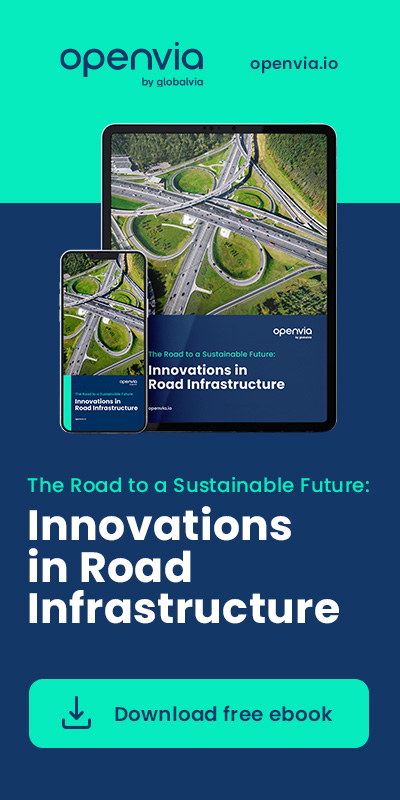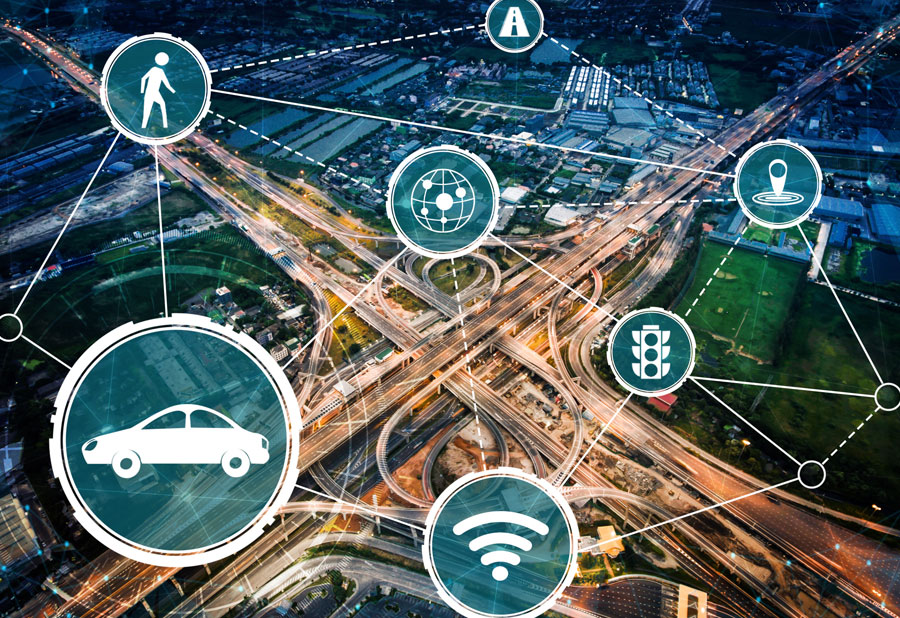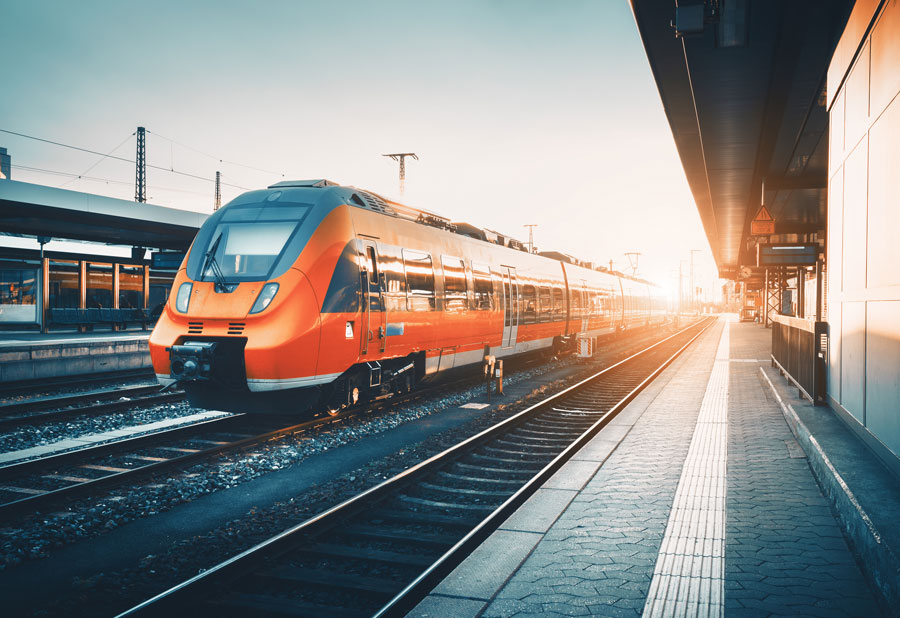Introduction
The exponential growth of e-commerce and accelerating urbanization are posing new challenges for urban logistics. Fast, efficient and predictable deliveries have become a standard consumer expectation, increasing the pressure on logistics companies to optimize their operations.
In this context, smart lockers emerge as an innovative and efficient solution, giving an answer to the need for more sustainable, efficient and foreseeable urban logistics. This article explores the relevance of smart lockers in the future of urban, rural and inter-islands mobility, their benefits for the last mile and how they contribute to the sustainability and efficiency of logistics operations.
The rise of smart ticketing in urban environments
Smart lockers have become a key technology for addressing logistics challenges in modern cities. These automated stations allow for the secure storage and convenient collection of parcels, offering an alternative to traditional door-to-door deliveries. Their popularity has increased significantly in recent years due to several factors:
E-commerce growth
E-commerce has experienced unprecedented growth, driven in part by the COVID-19 pandemic. This increase in online shopping has enhanced the demand for efficient and flexible delivery solutions, where smart lockers play a crucial role.
Urbanization and population density
Urbanization and high population density in modern cities present unique logistical challenges. Smart lockers, strategically located in high-traffic areas such as transport stations, shopping centers and residential buildings, help mitigate these challenges by centralizing parcel delivery.
Technological advances
Advances in technology, such as artificial intelligence and the Internet of Things (IoT), have enabled the integration of smart systems into lockers, improving their functionality and security. These innovations facilitate efficient locker management and user experience, making their adoption more attractive to businesses and consumers.
How do smart lockers benefit the last mile?
The last mile, the final leg of the delivery process from a distribution center to the final recipient, is one of the most complex and costly phases of logistics. Smart lockers offer multiple benefits to optimize this critical stage:
Reduced congestion and traffic
By centralizing deliveries at specific points, smart lockers reduce the need for multiple delivery vehicles on the road. This not only reduces traffic congestion and consequently CO2 emissions, but also improves the efficiency of urban traffic and reduces delivery times.
Saving time and operating costs
Smart lockers allow logistics companies to consolidate multiple deliveries in a single location, optimizing delivery routes and reducing operational costs. In addition, eliminating the need for multiple delivery attempts and returns management saves time and resources.
Last mile network with a time-deterministic capability for emergency or critical logistics
Smart lockers and air-logistics allow for one of the most important dimensions of time, which is determinism. For some critical or urgent logistics for specific scenarios or sectors such as health care or emergencies this dimension allows the priority segmentation without the intervention or orchestration of the rest of the transport means.
The current traditional infrastructure is limited by the 2 dimensions of the space, and the huge amount of traffic which is handled at some specific hours in cities. Solving this problem without environmental impact is one of the most positive elements for citizens, not only because of the direct impact for them, but also because it contributes to having a better environment for all of us.
Flexibility and convenience for consumers
Consumers can pick up their packages at any time convenient to them, without being tied to specific delivery schedules. This flexibility significantly improves customer satisfaction and reduces the rate of failed deliveries, a common problem in traditional last mile logistics.
Improved security and theft reduction
Smart lockers are equipped with advanced security systems, such as unique code access and video surveillance, which minimize the risk of theft and parcel loss. This provides an additional layer of security for both consumers and logistics companies, ensuring that packages reach their destination safely.
Sustainability and efficiency as key benefits
In a world increasingly aware of the need for sustainable practices, smart lockers stand out for their environmental benefits and their ability to improve the efficiency of logistics operations.
Reduced CO2 emissions
By reducing the number of delivery vehicles in circulation and optimizing delivery routes, smart lockers contribute significantly to the reduction of CO2 emissions and other pollutants. This is particularly relevant in urban areas, where air quality is a growing concern.
Efficient use of resources
Smart lockers enable a more efficient use of logistics resources, from fuel to drivers’ working time. The ability to consolidate deliveries and minimize failed delivery attempts reduces waste and improves operational efficiency, resulting in reduced environmental impact and lower operating costs.
Promoting sustainable mobility
The implementation of smart lockers is aligned with sustainable mobility policies that seek to reduce reliance on motorized vehicles and promote the use of greener alternatives. By facilitating the collection of parcels at accessible locations and reducing the need for door-to-door deliveries, smart lockers support these objectives and contribute to more sustainable urban mobility.
Integration with other mobility systems
Smart lockers can be integrated with other urban mobility systems, such as bike sharing and public transport, to offer even more sustainable logistics solutions. For example, lockers located at public transport stations allow users to pick up their parcels while using public transport, reducing the need for additional trips in private vehicles.
Traditional transportation accidents reduction
This new mobility will reduce the demand of traditional last mile delivery services, one of the most significant congestion transportations means in the city, which directly or indirectly produces accidents or incidents.
Conclusion
Smart ticketing is emerging as a key solution to address urban, interurban and rural logistics and last mile challenges. Their ability to reduce traffic congestion, improve operational efficiency, offer flexibility to consumers and contribute to environmental sustainability makes them a critical piece in the future of mobility. As cities continue to grow and evolve, the adoption of smart ticketing will be essential to create more efficient, safer and sustainable transport systems in and out of the cities.
The implementation of these technologies will not only improve logistics, but also transform the consumer experience, offering a practical and effective solution for parcel delivery in densely populated urban and interurban environments. With the right policy support and public-private partnerships, smart ticketing has the potential to revolutionize mobility and contribute to a more sustainable and efficient future for all.






